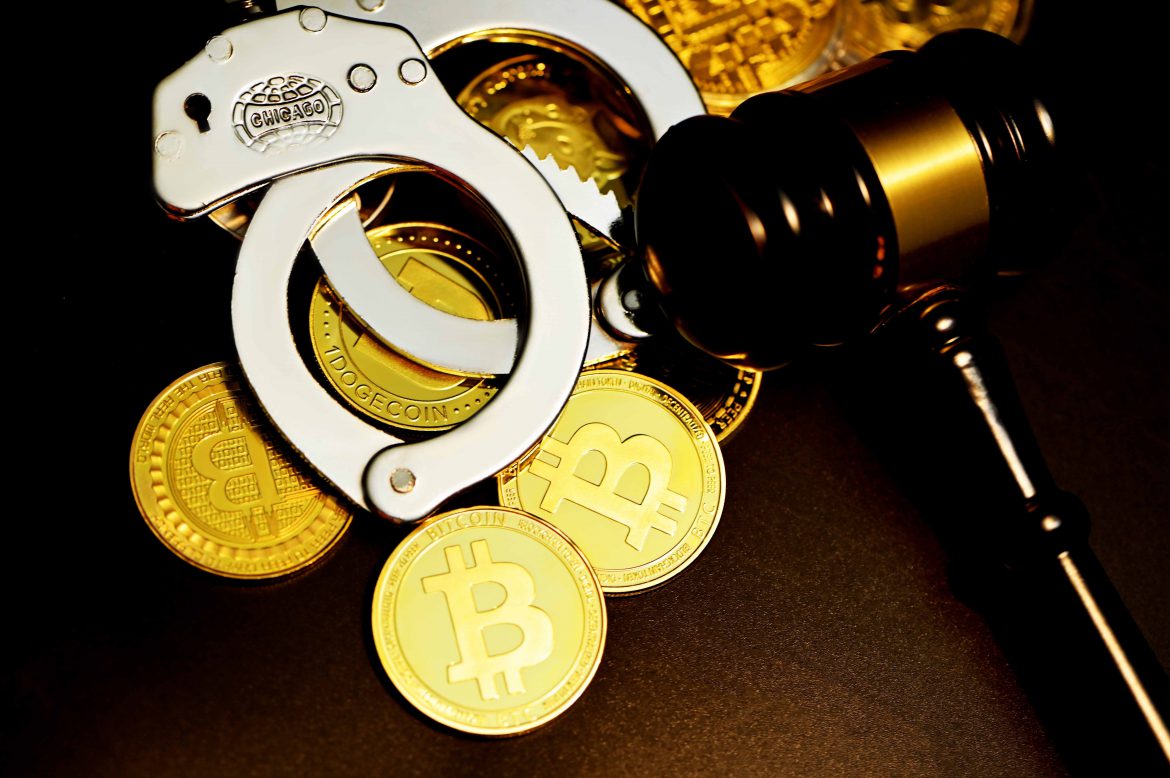By many, Bitcoin is considered a viable alternative to the corrupt central banking system. Indeed, it has the potential to circumvent the centralized financial system. And this is why we are getting to the point where its demise is almost inevitable.
People who claim that Bitcoin is an excellent tool of rebellion against the ever more totalitarian government need to realize how the government always dealt with any uprising. The history of Julian Assange, Guy Fawkes, or Hong Kong protests shows that it rarely abstains from the use of a garnered monopoly on force to silence its opponents. The ability to finance its activities by inflating the money supply is a crucial dominance instrument over its citizens. No longer is it reliant on collected taxes. There is no limit on spending. The value of savings and incomes erodes to fuel the never-balanced budget of the state. Why would the politicians give up their fundamental source of control? They will not.
Cryptocurrencies are a great alternative to avoid the control of the state; however, they are not perfect. If you think that the government cannot make Bitcoin illegal as this would be a breach of civil or human rights, you need to consider what happened in 1933. In that year, Roosevelt made gold ownership illegal. By a single act, the president broke every contract in the United States secured by the ability to exchange every single dollar into gold. And people, in a massive majority, complied with the government mandate to avoid 10 years of imprisonment and confiscation of their life savings.
There are no boundaries for our dear leaders. There was no way to protect your wealth from the ever-greedy government ninety years ago. Even now, anyone refusing to use the United States’ only legal tender will face severe punishment. State terror is an underestimated instrument. And thus, Bitcoin will probably soon become another victim of its ruthless force.
Most versions of Bitcoin bought by the average citizen are not decentralized. Custodial platforms collect full data on how much cryptocurrency is owned and transferred between users. Only a blockchain wallet allows you to protect your digital assets fully. The password could keep decentralized versions of cryptocurrencies away from the government; however, they can become useless if a government blocks their real-world usage. If you cannot buy official currencies or exchange Bitcoins for tangible goods and services, they become worthless. In his four-hour-long conversation with Lex Friedman and Michael Malice, Yaron Brook points out that the possibility of blocking any practical use of Bitcoin is absolutely within the capabilities of a state.
“It is true that we can exchange Bitcoin, and the government would not know that we did. But once he is advertising on his website that he accepts Bitcoin or once he tries to turn his Bitcoin into particular goods, once you manifest it in the physical world the government will step in. They can do that, and you will not be able to sell it. “
Suppose you need to access your blockchain wallet with thorough measures to protect your privacy and make exchanges on the black market under the threat of severe punishment. In that case, the use of Bitcoin en masse will be vaporized. The hope of reaching a critical mass and stabilizing its price so that it could hold value over time will be gone. Do you trust the politicians in Washington DC and Brussels to not act in their best self-interest because you have a right to privacy or free-market exchange of digital assets?
The widespread use of Bitcoin has already brought quite a worrying government response. The Federal Reserve and European Central Bank are launching their own version of a digital currency. And unlike Bitcoin, this one will be heavily centralized and strictly controlled. Also, unlike Bitcoin, its supply will not be limited. It will allow the government to create fictional money without even printing a single banknote. The final rendition of the inflationary monster will be released. Even worse, this will give the bureaucrats the ability to ultimately end all cash transactions and control absolutely every aspect of your spending. And a digital currency will allow central banks to force you to spend all your income immediately: for instance, by setting an expiry date on the money you have. The Keynesian dystopia of immediate injections into the economy is to be realized in quite the near future.
In the face of all those dangers to the power wielded by the state, will they let a wholly independent cryptocurrency – protected against inflation – roam free in the financial sphere? Certainly not. As soon as they are ready to implement their worthless digital currency, they will use their power to eliminate any competition without a shadow of a doubt. We already see hordes of useful idiots claiming that Bitcoin is not a real currency and is disastrous for the environment. Those quite outright lies have been debunked by Reason.tv, and others. However their spread continues by television show hosts such as Bill Maher and supposedly financially literate experts such as ECB president Christine Lagarde, whose academic credentials do not stop her from baseless slanders against cryptocurrencies.
The only beacon of hope I can see for Bitcoin is that China owns a significant portion of Bitcoin mining. The Chinese government is said to have the ability to affect the price of Bitcoin on the market single-handedly. Perhaps this gives a tiny hope that China’s investment in these areas could prevent the end of Bitcoin. But this is only a small piece of hope. So perhaps we should be less optimistic about how long Bitcoin will remain at its current heights.
This piece solely expresses the opinion of the author and not necessarily the organisation as a whole. Students For Liberty is committed to facilitating a broad dialogue for liberty, representing a variety of opinions. If you’re a student interested in presenting your perspective on this blog, click here to submit a guest post!
